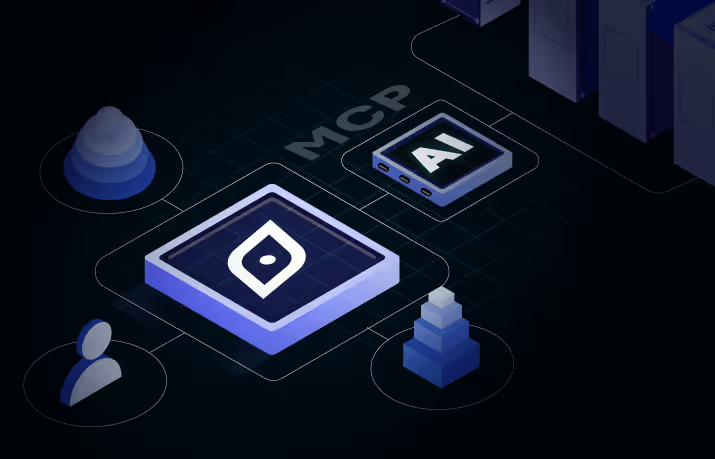10 Most in-demand AI Skills That Will Dominate the Future
In today’s hyper-fast landscape of technology, Artificial Intelligence (AI) has emerged as a game-changer, influencing industries and reshaping the job market.
As businesses harness the power of AI to gain a competitive edge, the demand for professionals with specific AI skills is on the rise.
10 in-Demand AI Skills Revolutionizing Businesses
1. Natural Language Processing (NLP)
As the interface between humans and machines becomes more seamless, NLP has become a critical AI skill in strategic workforce planning. Companies are actively seeking individuals skilled in NLP to develop applications that can understand, interpret, and generate human language.
44% of organizations are already implementing or planning to implement NLP solutions at scale.
From chatbots providing customer support to sentiment analysis for market research, the applications of NLP are diverse.
Companies are looking for experts who can create algorithms capable of comprehending context, tone, and nuance in written or spoken language, ultimately improving UX.
2. AI Content Creation
AI content creation has emerged as a transformative force, revolutionizing the way digital content is generated.
From articles and blog posts to marketing copy and creative content, AI algorithms, often powered by large language models, can craft compelling and contextually relevant material.
More than half of business leaders are presently experimenting with AI content generation tools, and almost 65% are expected to have experimented with it by the end of the year.
This skill is coveted by companies looking to streamline content production processes, enhance creativity, and engage audiences with personalized and impactful content.
3. AI Ethics and Responsible AI
Companies are recognizing the need for professionals well-versed in AI ethics and responsible AI practices.
Skills in understanding the societal impact of AI, mitigating biases, and ensuring fairness in algorithms are becoming integral.
Over 50% of business executives have agreed upon the importance of ensuring that AI systems are ethical, and 41% of senior executives have abandoned AI due to ethical concerns.
Professionals with expertise in AI ethics can help organizations navigate the ethical challenges associated with AI implementation, ensuring that the technology is deployed responsibly.
4. AI Infrastructure Management
Companies are actively seeking professionals who can design, deploy, and maintain the robust infrastructure needed to support AI applications.
Recent reports indicate that the demand for AI infrastructure professionals has increased by 60% since 2019, with a median salary of $150,000 per year.
Skills in cloud computing platforms, containerization technologies like Docker, and orchestration tools such as Kubernetes are increasingly valuable.
Professionals with AI infrastructure management skills play a crucial role in ensuring the scalability, reliability, and performance of AI applications.
5. Computer Vision
The ability of machines to interpret and make decisions based on visual data is transforming industries such as healthcare, automotive, and manufacturing.
The global computer vision market was valued at $11.94 billion in 2020 and is expected to reach $26.2 billion by 2025, climbing at a CAGR of 17.5%.
Companies are leveraging computer vision for applications like facial recognition, object detection, and autonomous vehicles.
Professionals with expertise in computer vision can significantly contribute to advancements in medical imaging, quality control in manufacturing, and even enhancing security systems.
6. Large Language Models (LLMs)
Large Language Models, often powered by transformers, have revolutionized natural language processing.
These models, with billions or even trillions of parameters, exhibit remarkable capabilities in language understanding.
Professionals skilled in working with LLMs are instrumental in developing applications ranging from chatbots and language translation to content generation and sentiment analysis.
7. AI-Driven Cybersecurity
With the increasing sophistication of cyber threats, companies are integrating AI into their cybersecurity strategies. AI can analyze vast datasets to detect anomalies, identify potential threats, and respond in real-time.
From intrusion detection systems to behavior analysis, companies are leveraging AI to stay ahead of cyber threats.
62% of enterprises have fully implemented AI for Cybersecurity. Today, 71% of organizations spend more on AI and machine learning for cybersecurity than two years ago.
Professionals in this field are responsible for creating adaptive security measures that can learn and evolve to counter emerging risks.
8. Generative AI
Generative AI, at the heart of creative innovation, encompasses a broad spectrum of applications. It includes creating content, generating images, and even composing music.
67% of IT leaders surveyed said they have prioritized Generative AI for their business within the next 18 months.
The number of job postings referring to “generative AI” has increased 36x compared to the previous year.
Companies are eager to harness the creative potential of generative AI, and professionals with expertise in this skill are sought after to drive innovation and bring a new level of creativity.
9. Midjourney
Midjourney represents an innovative approach to AI-driven solutions, focusing on enhancing user experiences and interactions.
Midjourney currently has over 16 million users on the platform, leveraging the tool to create quick digital assets because it can process 20-40 tasks per second, demonstrating its robust capability to cater to many users.
Professionals skilled in Midjourney contribute to the development of user-centric AI applications, ensuring that technology aligns seamlessly with human needs and preferences.
10. Prompt Engineering
Prompt engineering involves the strategic design of input queries to influence the output of language models.
Skilled professionals in prompt engineering play a crucial role in fine-tuning AI models to generate desired responses.
Some jobs in prompt engineering can pay up to $335,000 a year, demonstrating the necessity of this skillset in the modern job market.
Companies recognize the impact of prompt engineering in tailoring AI systems to specific use cases, ensuring relevance and accuracy in generated outputs.
Final Thoughts
The future of talent acquisition and retention hinges on the proactive implementation of reskilling initiatives. As businesses navigate the digital landscape, prioritizing GenAI-enabled talent isn’t just a choice – it’s a necessity.
Draup for Talent is an AI-powered platform that empowers companies to identify, nurture, and retain GenAI talent. Its data-driven insights enable managers to pinpoint individuals who would benefit from reskilling and upskilling initiatives.
The platform facilitates personalized learning paths, providing access to relevant training and development resources for each employee.










.svg)

















.svg)





.svg)





.svg)
